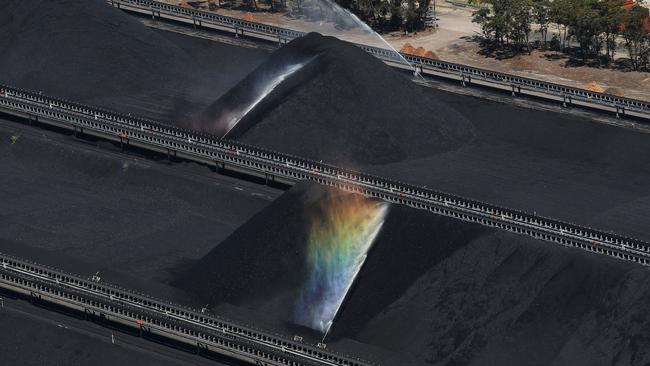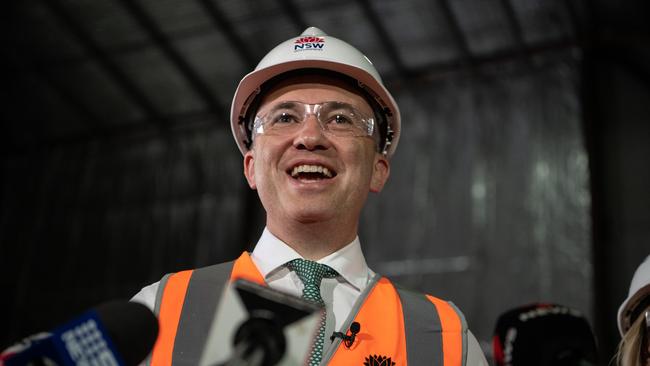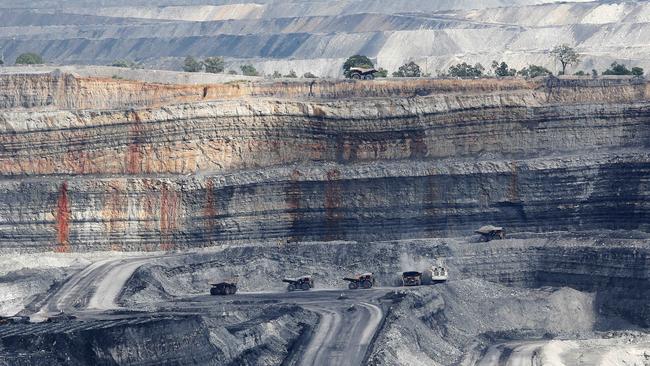NSW government softens its coal reservation demand, exempts Japanese major
Confusion reigns over the NSW government’s coal demand after it softened its expectation for reserves.

The NSW government has dialled back the extension of its coal reservation scheme, shaving about 2 million tonnes of coal from the amount it is demanding NSW miners set aside for local power stations.
The shift comes as the state’s biggest coalminer, Glencore, ramped up its criticism of the scheme on Friday, with a spokesman saying that – despite running discussions between industry and the NSW department officials over the past month – the latest intervention risked permanently disrupting a functional domestic market.
NSW Energy Minister Matt Kean is expected to publish new orders next week requiring of the state’s coalminers to reserve a portion of their production for use in local coal-fired power stations, with departmental officials conducting their last round of industry consultation on Friday.
The orders come after the failure of an alternative proposal to implement the reservation through an agreement between miners and the state government, with no coal companies believed to have signed up for the deal.

A spokesman for Glencore said on Friday the company still believed the coal reservation scheme was “rushed, poorly designed and inequitable, putting at risk NSW’s reputation as a stable destination for investment”.
“It is clear the NSW government is intervening into a market that it doesn’t understand, and this intervention will have long-term detrimental impacts on the domestic market. The NSW government has refused to provide any modelling and the Treasurer refuses to engage,” he said.
Orders issued by Mr Kean in late December required miners already supplying to NSW coal-fired power stations to reserve about 18.6 million tonnes of thermal coal for domestic supply, at a maximum price of $125 a tonne for coal suitable for use in NSW power stations.
The Weekend Australian understands those orders were sparked by concerns that only about 15 million tonnes of coal was contracted through long-term arrangements, with at least one major power station believed to be badly exposed to spot coal pricing after failing to sign long-term agreements for domestic supply.
That gap sparked concerns from existing suppliers to NSW power stations – including Peabody, Glencore and Centennial Coal – which believed they were being unfairly targeted by the coal reservation scheme because of their existing supply contracts.
While believing the coal reservation would have little impact on power prices, they argued that if it was to be introduced the shortfall should be divided evenly between all the state’s coalminers, not just those with existing contracts.
When the state government first approached the industry with plans to expand the scheme to miners servicing export markets, officials said they were seeking to reserve about 22 million tonnes of coal as a result of a shortfall in the amount of coal required by generators for the year.
Only the difference between the initial 18.6 million tonnes and the new figure would be picked up by export miners, including BHP, Whitehaven Coal and Yancoal.

But the NSW government appears to have reduced the tonnage it is seeking to set aside, with the latest set of draft orders targeting a 20.5 million tonne coal reservation for 2023 – about 2 million tonnes less than when the government first floated the expansion of the scheme.
Industry sources said on Friday the shift, while welcome, only raised further concerns about how the government had arrived at its shortfall figure.
One senior source said the tone of recent meetings with departmental officials suggested they were under instructions to implement the government’s reservation policy irrespective of its impacts on industry, and without any clear evidence it would help lower coal prices.
“They should just use some of the $6bn in coal royalties they’ll get this year to subsidise power bills for low income families,” the source said.
The new orders appear to exempt the Boggabri mine, owned by Japanese majors Idemitsu, Nippon Steel and Chugoko Electric Power Company, after the Japanese consul-general in Sydney wrote to the state government to express concerns that the scheme could affect Japanese investment in the state.
And, under the new orders, other export coalminers will now be required to offer 6 per cent of their production into the domestic market – or buy the equivalent amount from other mines to meet their obligations.
Whitehaven will be required to supply just over 1 million tonnes of coal from its Werris Creek, Maules Creek and Narrabri mines. Yancoal will be told to supply 1.6 million tonnes from its mines.


To join the conversation, please log in. Don't have an account? Register
Join the conversation, you are commenting as Logout